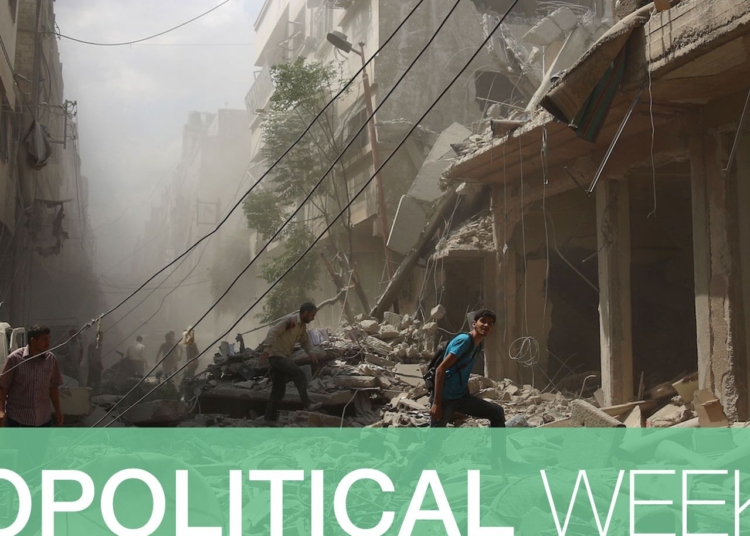The Syrian Civil War is a complex conflict that has been ongoing since 2011, with significant repercussions for the region and the world. This article explores the historical roots of the conflict, including decades of authoritarian governance, economic inequality, and sectarian tensions in Syria. It also delves into the key actors involved, such as the Syrian government led by Bashar al-Assad, opposition groups, jihadist organizations, and Kurdish forces. The regional implications of the conflict are also discussed, including sectarian tensions and the rise of extremist groups like ISIS. Additionally, the article addresses the international ramifications of the war, such as the refugee crisis and the involvement of major world powers like the United States and Russia. Understanding the complexities of the Syrian Civil War is crucial for finding a sustainable solution to this devastating conflict.
Byzantine Complexity: Understanding the Syrian Civil War and its Global Effect
Introduction
The Syrian Civil War is a complex conflict that has been ongoing since 2011. It has not only ravaged Syria but also had significant repercussions for the region and the world. This article delves into the intricacies of the conflict, exploring its historical roots, key actors, and the expansive impact it has had both regionally and internationally.
Historical Context
The roots of the Syrian Civil War can be traced back to decades of authoritarian governance, economic inequality, and sectarian tensions in Syria. The rise of the Arab Spring in 2011 provided a catalyst for anti-government sentiments to bubble to the surface, leading to protests demanding political freedom and economic reform. The government’s violent crackdown on these protests sparked widespread outrage and led to the formation of armed opposition groups, marking the beginning of the civil war.
Key Actors
The Syrian Civil War involves a myriad of actors with varying agendas, making it a complex conflict to comprehend. The primary players include the Syrian government led by Bashar al-Assad, opposition groups ranging from secular rebels to Islamist militias, jihadist organizations such as ISIS and al-Qaeda, and Kurdish forces seeking regional autonomy. Additionally, international powers have also intervened, with Russia and Iran supporting the Syrian government, while the United States and its allies have backed certain opposition factions.
Regional Implications
The Syrian Civil War has had far-reaching regional consequences. The conflict has exacerbated sectarian tensions, especially between Sunni and Shia Muslims, leading to a wider proxy war involving regional powers. Saudi Arabia, a Sunni-majority country, and Iran, a Shia-majority country, have provided support to opposing factions, deepening their regional rivalry. This sectarian strife has spilled over into neighboring Iraq and Lebanon, contributing to instability and conflicts in these countries.
Moreover, the conflict has created a power vacuum and allowed extremist groups to thrive. ISIS capitalized on the chaos in Syria, establishing a self-proclaimed caliphate and launching brutal attacks both within Syria and abroad. The rise of ISIS has had a significant impact on the security of the entire Middle East, with various countries joining forces to combat its influence.
International Ramifications
The Syrian Civil War has not only reshaped the geopolitical landscape of the Middle East but has also had profound implications on a global scale. The conflict has triggered one of the largest refugee crises in history, with millions fleeing Syria in search of safety and stability. The influx of refugees has strained neighboring countries, such as Turkey, Lebanon, and Jordan, and has also led to polarizing debates and political challenges in Europe and the United States.
Furthermore, the global nature of the conflict has drawn in major world powers, creating a complex web of interests and rivalries. The United States and Russia, once again, found themselves on opposite sides of a conflict, leading to tensions and the risk of escalation. The involvement of regional and international actors has further complicated efforts to find a political solution and has extended the duration of the war.
Conclusion
The Syrian Civil War is an intricate and multifaceted conflict with profound implications for Syria, the region, and the world. It is vital to understand the historical context, key actors, and its regional and international ramifications to fully grasp the complexities surrounding this devastating war. Achieving a sustainable solution requires a comprehensive approach that takes into account the diverse interests and dynamics involved.













